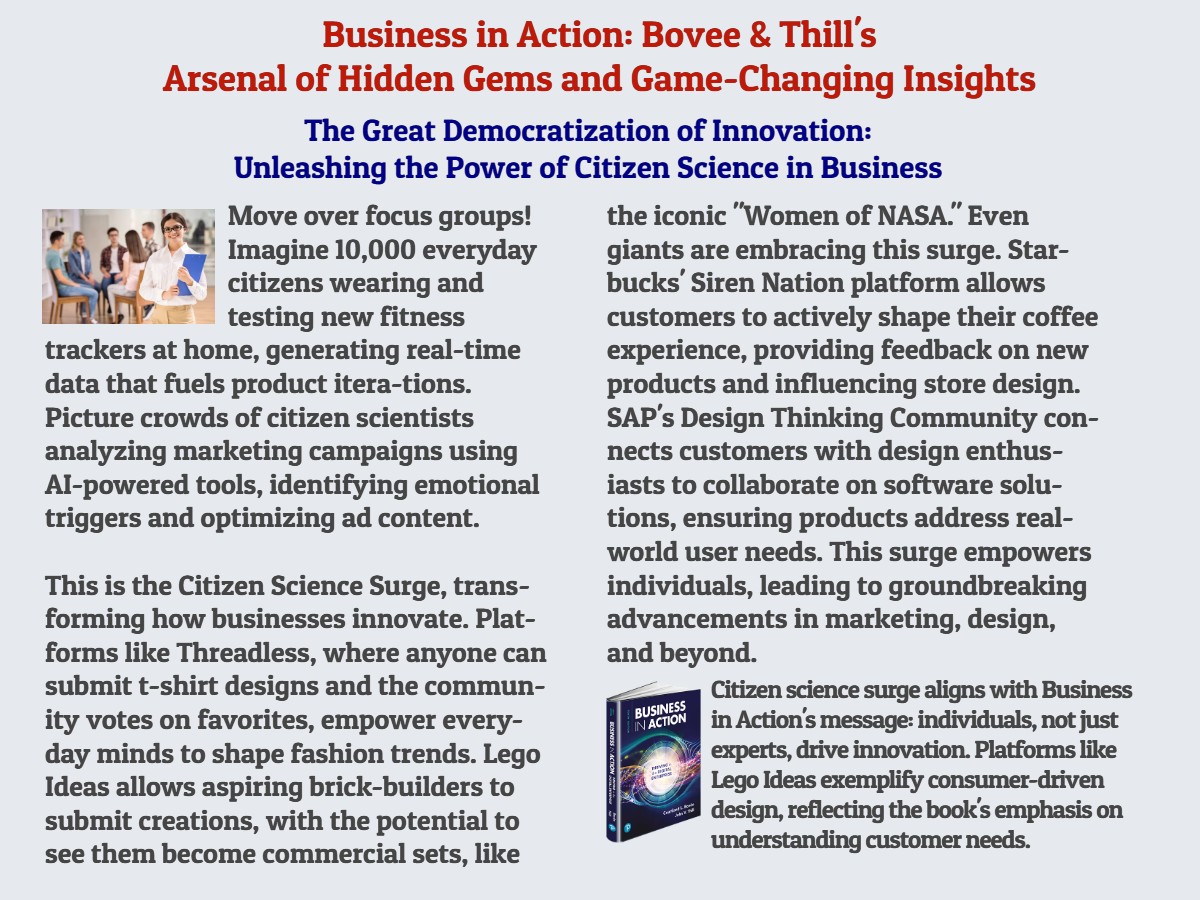 Discussion Questions and Answers:
Discussion Questions and Answers:
1. Question: This article describes the "Citizen Science Surge" as a positive development. Are there any potential downsides or ethical considerations businesses should be aware of when relying on citizen scientists?
Answer: While the Citizen Science Surge holds immense potential, some potential downsides and ethical considerations exist.
These include:
Data privacy and security: Gathering data from thousands of individuals raises concerns about data privacy and security. Businesses must ensure robust data protection measures and transparent communication with participants.
Bias and representativeness: A large, but non-representative sample of "citizen scientists" might lead to biased results that don't reflect the broader population. Businesses should consider ensuring participant diversity and representativeness.
Exploitation and fair compensation: Citizen scientists contribute valuable data and insights. Businesses should consider fair compensation models or offer meaningful rewards for participation.
Ethical AI usage: Using AI for analysis raises ethical questions about accountability, transparency, and potential discrimination based on AI biases. Businesses need responsible AI development and deployment practices.
2. Question: The article focuses on businesses embracing the Citizen Science Surge. How can individuals leverage this trend to participate and contribute?
Answer: The Citizen Science Surge offers exciting opportunities for individuals to:
Contribute to meaningful projects: Individuals can join platforms like Threadless, Lego Ideas, or citizen science projects on SciStarter to directly shape products, campaigns, or research.
Develop new skills: Platforms often provide training and resources, allowing individuals to learn new skills in design, data analysis, or scientific research.
Connect with communities: Citizen science fosters collaborative communities where individuals can connect with like-minded people, share ideas, and contribute to collective advancements.
Gain recognition and rewards: Some platforms offer recognition and rewards for outstanding contributions, motivating individuals to engage actively.
Bonus Discussion:
What other industries could benefit from the Citizen Science Surge?
How can technology be used to further empower citizen scientists and ensure the success of this trend?
Key Business in Action Concepts and Their Connection to the Surge
- Market Research: Citizen science projects are essentially large-scale, organic market research. Real-time product data from thousands of 'citizen testers' yields invaluable insights faster than traditional focus groups. Companies directly assess customer reactions and preferences, driving product design choices.
- Consumer-Driven Innovation: The surge transforms innovation from an internal process to a collaborative one. It aligns with the idea that businesses must be receptive to customer needs, even using consumer-created designs (Threadless, Lego Ideas). This blurs the line between producer and consumer.
- Co-creation & Crowdsourcing: Platforms that invite consumer participation embody the value of co-creation and crowdsourcing. Companies recognize that expertise and innovative ideas can reside outside their traditional R&D departments.
- Data Analytics: The surge generates immense datasets. Companies need analytics capabilities, often powered by AI tools to make sense of this influx of data. Business in Action often introduces the strategic importance of data analysis.
- Agile Development: Real-time customer feedback allows companies to adopt a more agile development approach. Rapid product iterations based on user data are emphasized in modern business strategies, contrasting with lengthy traditional product development cycles.
Beyond the Textbook: Additional Perspectives
- Democratization of Innovation: This surge makes innovation accessible to a broader range of people. In the past, design and product choices often resided solely within the company. Now, anyone with a good idea can potentially influence a product or marketing strategy.
- Collective Intelligence: Citizen science leverages the power of collective intelligence–the idea that groups can be collectively smarter than individuals. Diverse perspectives and insights are harnessed by businesses.
- Ethics and Transparency: This model raises questions businesses need to grapple with. How do they ensure fair compensation (if any) for citizen contributions? How do they maintain transparency regarding the use of data and ideas?
See the Business in Action brochure: https://lnkd.in/ebQFKB4t. Video: https://lnkd.in/epDtr6jd. How Does Your Current Text Compare: https://lnkd.in/eSzpc5P8. To request an examination copy of Bovee and Thill's award-winning Introduction to Business text, Business in Action (instructors only), visit https://lnkd.in/eDfhNKJ.